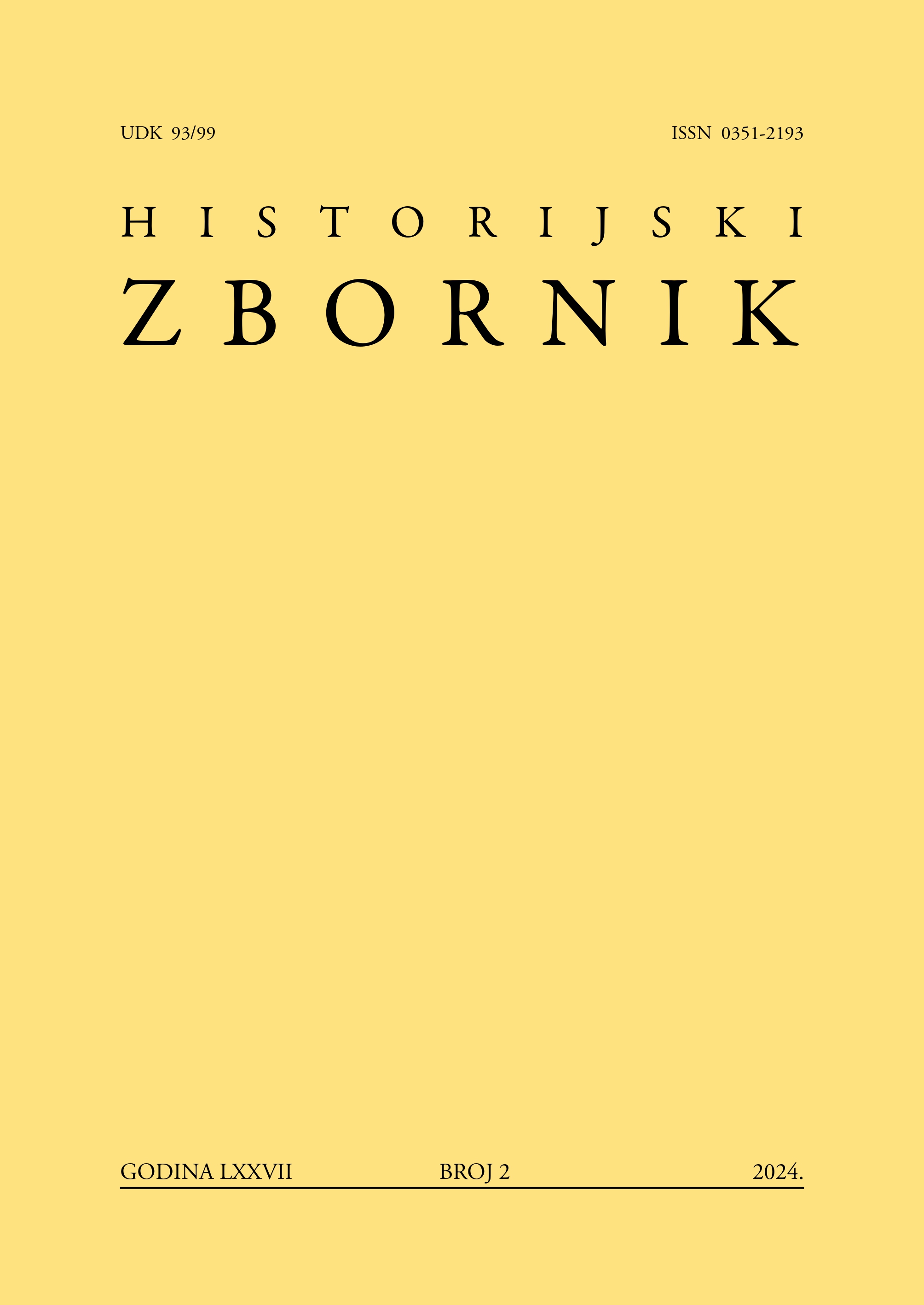The Idea of Earth from Divinity and Ancient Origins to the Modern Ideologies of Land and Soil
DOI:
https://doi.org/10.59412/hz.77.2.1Keywords:
zemlja „earth“ (word and concept); language; religion; mythology; philosophy; science; political ideologyAbstract
This paper has been written on the basis of the introductory presentation at the 7th Congress of Croatian Historians, with occasional reductions. The topic of the Congress was Earth – as a direct impetus and contribution to the understanding of the area in which it was held, namely Slavonia, Srijem and Baranja, for the first time. The Croatian noun zemlja, like the corresponding words in other languages, is highly polysemous. Two meanings can be identified as fundamental or original: one, zemlja (land) as a solid surface of the world on which animals and people move and plants grow, and the other, zemlja (soil) as the substance from which that base is made. All other meanings (mainland, plot of land, field, estate, province, country, planet, „this world“) will prove to be derived from these two basic meanings. The word and the concept zemlja (earth) are not just polysemous, which means that we think and talk about different things when using them, but rather, they are included, from the beginning, in complex conceptual conjunctions that can be tentatively called ideological. Ideas about the earth are embedded, as an essential component, in the universalistic and transnational political movements and ideologies. In the request that the earth should belong to those who work on it, one may discern a distant echo of the idea of the earth as the mother of all people and of her inclination to protect those who know and worship her. A kind of secularised idea about the sanctity of the earth; however, it is noticeable quite clearly in the form of the latest formulations of ecological and ecopolitical thought.
Downloads
Published
How to Cite
Issue
Section
License

This work is licensed under a Creative Commons Attribution-NonCommercial 4.0 International License.
Copyright holders are the publisher Association for Croatian History and the authors.
Historical Journal is an Open Access journal. Users are allowed to read, download, copy, redistribute, print, search and link to material, and alter, transform, or build upon the material, or use them for any other lawful purpose as long as they attribute the source in an appropriate manner according to the Creative Commons licence CC BY-NC.
The papers published in Historical Journal can be deposited and self archived in the institutional and thematic repositories providing the link to the journal's web pages and HRČAK. Journal does not charge article processing charges (APC). The editors assume no responsibility for statements of fact or opinion made by contributors.

